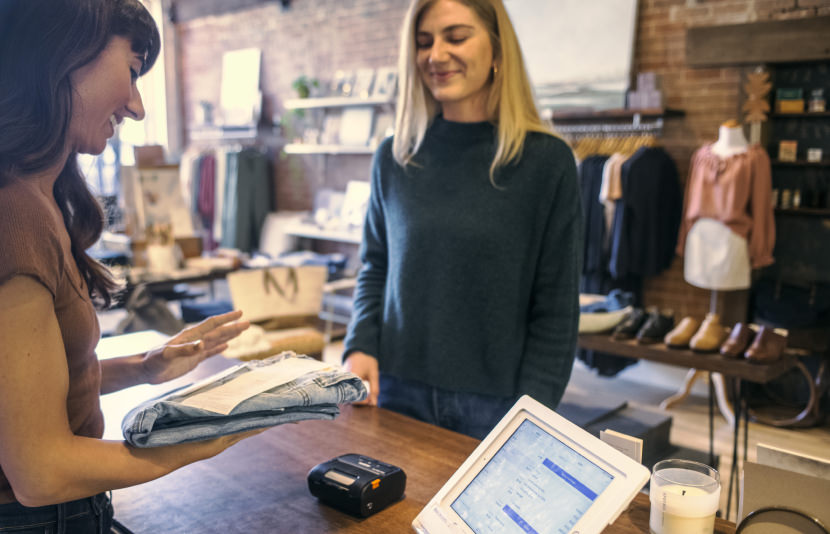Get 2-inch printing fit to your work with endurance to handle everyday hazards.
The rise of omnichannel strategies like online ordering and curbside pickup has been met with a marked rise in returns. And while returns have long been a key element of the retail cycle, your process may deserve another look. When done correctly, returns can be a chance for your store to retain profits, optimize future ordering, and improve the customer experience.
Returns can be complex. The price of the item may have changed since its original purchase, requiring relabeling. Merchandise not suitable for resale in stores must be shipped to a warehouse or returned to a vendor. A customer may try to return a product purchased at a lower price for full price, resulting in profit loss. These factors are key elements in rethinking a return strategy. So, what’s the best way for a store to manage returns in a fast-paced, omnichannel environment?

Optimizing Profit while Enhancing the Customer Experience
For retailers, returns are a balance of mitigating profit loss and ensuring a positive customer experience. They’re a crossroads where a good experience can increase loyalty and the likelihood of a customer coming back. But many small to medium sized retailers don’t have the infrastructure and logistics to make the Amazon model work; it eats too much profit.
Small and medium businesses are looking for other ways to incentivize returns toward areas Amazon doesn’t have, like directing customers to a physical store. By incentivizing customers to come back to the store, you can increase the likelihood that a consumer will purchase something in-store while making their return.
Read more: Bring Back Shoppers with Smart Pricing Strategy

Working with Legacy Systems
One of the biggest hurdles many retailers are having to jump is their own legacy systems. Many retailers have customized systems that have been band-aided over the years, making it cumbersome to update or stay nimble. But finding the right system is critical for retailers looking to stay competitive as omnichannel shopping grows.
You can start by choosing software that does the work for you. Things like integrated Warehouse Management Systems, Point of Sale systems and eCommerce systems simplify the return process. When products can move seamlessly from one system to the next, no matter how the customer returns the product, you can get it back in front of new customers quickly. But, you need the right hardware to make it happen.

Labeling Returns in an Omnichannel Environment
Whether returns are going back on the floor, shipping out of a warehouse to the original vendor, or shipping between stores—labeling returns correctly is a critical step. So if you’re looking to take a small step approach, consider updating your labeling hardware. A compatible and flexible mobile printer that can work with your existing system and grow with you as you upgrade elements can be a game changer for workers on the floor, your customers, and your ROI.
Read more: Move Inventory. Boost Labeling. Keep Shoppers Coming Back
Consider adding labels onto items before they’re purchased and requiring that your customers return merchandise with these labels intact. This can also ensure that an appropriate return price is applied, which may help prevent fraud.
Finally, look for printers that can apply to more than a singular task. For example, pick a labeler that can both print a tag for in-store markdowns or pricing and can also print a shipping label to return to the warehouse or the vendor.
Read more: Small Step, Big Win: Streamline Your Retail Price Labeling
The renewed focus on return policies and strategies is critical to success in the omnichannel environment. Brother’s premier portfolio of retail printers can grow with your retail operations as you implement new systems and policies to address the omnichannel shopping experience. Learn more about how our line of printers can help you address return challenges.







